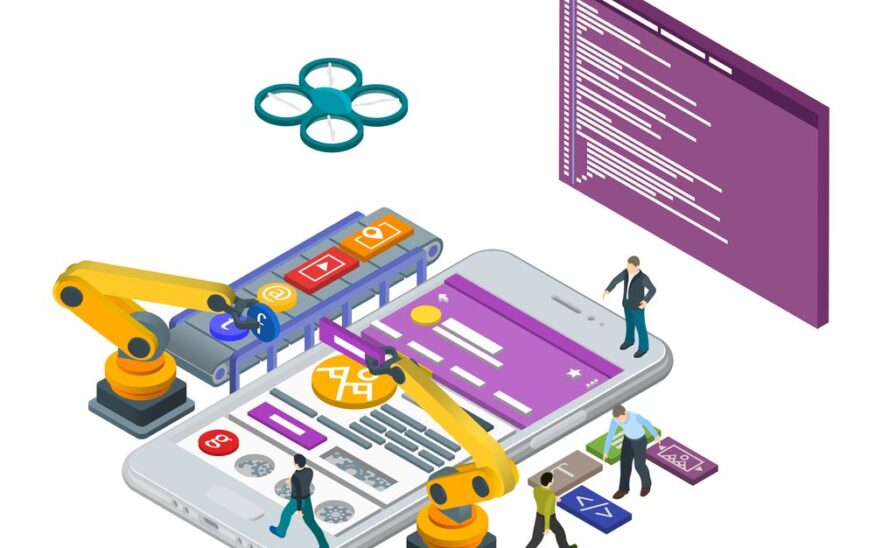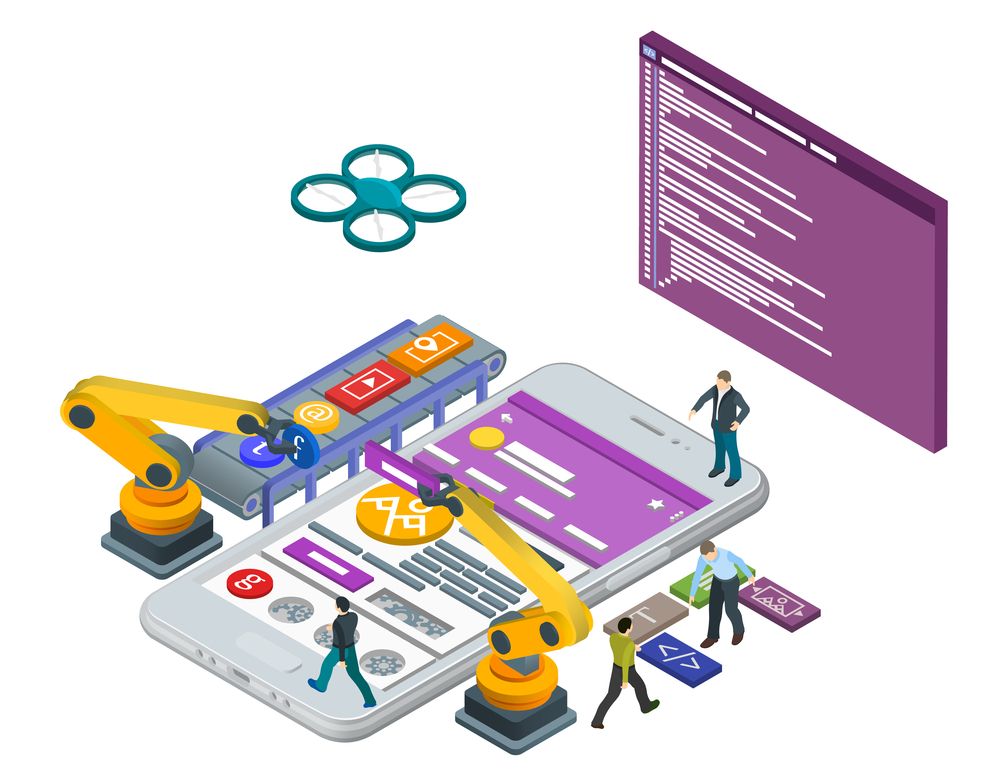Why you need to keep up with mobile app trends
Consider these factors when developing or updating your business’ mobile app
Rob Carpenter //January 31, 2017//


Why you need to keep up with mobile app trends
Consider these factors when developing or updating your business’ mobile app
Rob Carpenter //January 31, 2017//

Today, it seems as if almost everybody uses a mobile device, and these devices are capable of doing more every day. Increasingly, the digital landscape is going mobile as more people turn to devices like smartphones and tablets to help them do business, stay informed, interact with others and so much more.
According to Statista, the overall number of mobile phone users reached 4.43 billion in 2015, and the number is expected to grow to 4.77 billion in 2017. And with a global population of only about 7.4 billion people, that means more than half of the world uses mobile phones.
We are all aware by now that mobile applications and user demand are rapidly shaping the world of technology, and the number of new mobile apps is increasing at a seemingly exponential rate. The proliferation of mobile apps has increased competition in the mobile app development industry, and when it comes to technology — especially mobile technology — if you aren’t keeping up with the trends, you will be left behind.
At first, mobile apps were offered as productivity solutions or information-retrieval tools — like email, calculator, calendar — but now, millions of apps exist in the Apple App Store, Google Play and other popular operating system-native stores. Mobile technology trends should be high on any organization’s watchlist as, in 2017, there are projected to be more than 268 billion apps downloads generating $77 billion in value, according to another Statista report.
With the new year here, it is time to look to the future of mobile app development in 2017 and beyond. You’ll want to consider these trends when you decide to develop or update your business’ mobile app in order to take full advantage of the platform’s offerings and generate brand engagement, drive productivity and increase revenue.
Artificial Intelligence
Artificial intelligence (AI) has evolved out of sci-fi settings and into the real world. In fact, mobile apps — like Apple’s Siri and IBM’s Watson — are already utilizing AI capabilities to supply users with the best solution to their query. AI and machine learning allows machines to evaluate massive amounts of research and data to dictate the optimal procedure and many companies are beginning to take advantage of the technology.
Be it monitoring stock exchanges, making important business decisions, vetting applicants or automating compliance regulations, tech-savvy businesses understand the trend towards AI and associated technologies such as machine learning and cognitive computing and are hurrying to rationalize how to capitalize on these capabilities. As mobile apps begin learning from users through patterns and usage, they will begin to anticipate user needs, leading to a heightened user experience.
Automation
As mobile technology further becomes integrated into businesses, mobile automation will allow for increased opportunities for cost reduction and improved efficiencies — things every business strives to achieve.
Every day, companies are converting their processes or entire facilities to largely automatic functionality, and they are beginning to enjoy the results as efficiencies are improved and costs are reduced. Replacing outdated computer technologies with mobile devices additionally saves more time and money and improving your business’ bottom line is always going to be crucial.
“Altered” Reality
Both augmented reality (AR) and virtual reality (VR) apps are quickly becoming some of the more engaging options available on the market. Look no further than the Pokemon GO phenomenon and the popularity of commercials advertising VR headsets to realize the potential of these technologies.
Beyond the gaming sphere, AR and VR are witnessing increased applications for not only consumers but other businesses as well. Increasingly, AR and VR are being utilized in live streaming, travel, real estate, B2B and healthcare as well as for creating virtual marketplaces.
Web & Social Connectivity
The lines between websites, social media and mobile apps are increasingly becoming blurred as these separate spheres are being merged into one all-inclusive arena. With users looking for more social interactions on each platform, technology is bridging the gaps between web, social and mobile. Useful web and social connectivity that optimizes a user’s experience regardless of the platform they’re using is becoming increasingly adopted by businesses on the cutting edge of technology and integrated apps are the future.
In the end, a new year is an exciting time for businesses. It gives decision-makers a chance to look back and assess what worked, what didn’t and what changes need to be made. If your business doesn’t have a mobile application, you’re already behind as nearly 50 percent of all small businesses will have a mobile app by 2017. Taking these trends into consideration when your business decides to develop or upgrade its mobile app will help you increase sales through mobile, drive productivity, and improve customer engagement and loyalty.

Rob Carpenter is the co-founder and CEO of AppIt Ventures, a Colorado-based custom software development company that partners with firms to build cutting-edge, high-quality technology. For more information, please visit appitventures.com or contact [email protected].
























